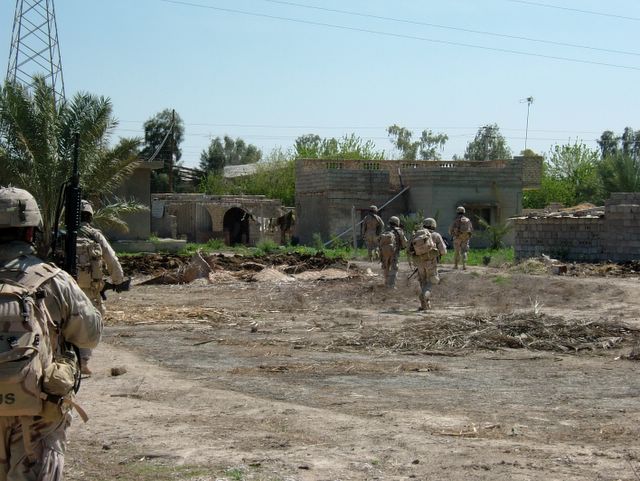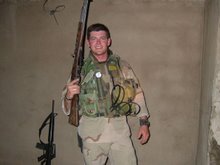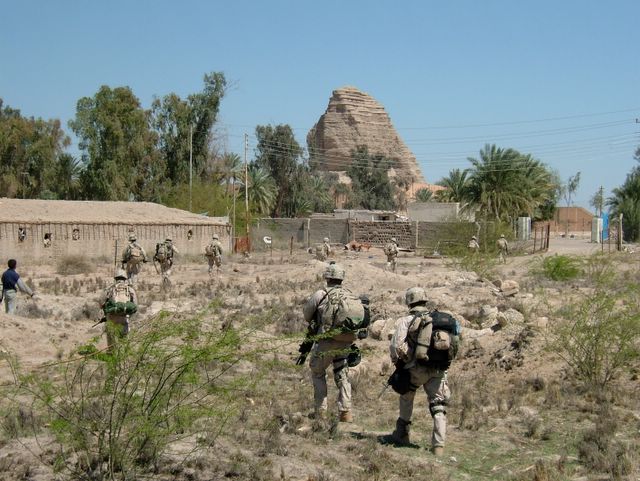Iraqis greet Asian Cup triumph with joyful gunfire
Jul 29 03:35 PM US/Eastern
From BREITBART.com
Iraq erupted in joy and celebratory gunfire on Sunday when the country's national football squad won the Asian Cup and united its bitterly divided communities in a rare moment of celebration.
Thousands of Iraqis, including members of the security forces, defied a strict government ceasefire order to welcome the team's 1-0 victory over local rivals Saudi Arabia with an intense barrage of gunfire.
Soldiers, police and civilian gunmen loosed off long volleys of automatic fire skywards and into the waters of the Tigris within seconds of the final whistle in Jakarta, beamed live to cafes and homes across the country.
The Iraqi victory against the three-time Asian Cup champions was a precious moment of shared national joy in a country beset by civil strife.
"Now it is our right to enjoy this victory that our heroic team has brought to us. They have brought us joy that we never experienced in the past, when we suffered greatly," said Haidar Mustafa, a Baghdad student.
Around him in a downtown coffee shop, dozens of fans leapt and sang with joy after seeing skipper Younis Mahmoud's powerful header seal a first Asian Cup victory for his mixed team of Sunni Arabs, Shiite Arabs and Kurds.
From the southern Shiite port city of Basra, to executed Sunni dictator Saddam Hussein's northern hometown of Tikrit and even to Arbil, the capital of the autonomous Kurdish region, flag-waving crowds celebrated.
Earlier, Baghdad security authorities had imposed an overnight vehicle curfew in order to prevent insurgent car bomb attacks and ordered police to arrest anyone who took part in the traditional celebratory gunfire.
In the hours leading up to the match there were reports that two foreign Arab fighters had been apprehended while trying to move car bombs into Baghdad's Zayuna district, which has been targeted by Sunni extremists.
Zayuna was struck by one of two car bombs that went off following last week's semi-final victory against South Korea, shattering the celebrations and killing at least 50 people.
"The security leadership of Baghdad operations has decided to enact a curfew for vehicles, motorbikes and carts," Brigadier General Qassim Atta, spokesman for security operations in Baghdad, said before the match.
A senior interior ministry official strongly advised Iraqis to hold their celebratory fire and to stay in their own areas of the city.
Nevertheless, troops and cops were among the first to start pumping out rounds from their AK-47 assault rifles and Glock pistols at checkpoints and barracks in the centre of the war-torn capital.
Elsewhere in the city large crowds gathered in the streets waving flags, dancing and -- in Shiite neighbourhoods -- bearing aloft large banners with pictures of revered saints.
Iraqis traditionally celebrate sporting victories by firing guns into the air, a practice grown more lethal in recent years as arms have proliferated across the war-torn country.
People nevertheless welcomed the victory from their heroic team, one that would -- at least temporarily -- unite their divided country in jubilation.
In a statement released immediately after the match Prime Minister Nuri al-Maliki called the victory "a lesson in how to triumph over the impossible to realise victory".
"May you and Iraq live in freedom and victory, with no place for destroyers or killers. Your greatness will remain in the hearts of the Iraqi people, and your joy is stronger than the hate of the terrorists."
Since US-led forces overthrew Iraqi dictator Saddam Hussein in March 2003, the country has slipped into a chaotic turf war between rival armed factions, with extremists driving a wedge between Sunnis and Shiites, Arabs and Kurds.
With Maliki's coalition government riven by internal rivalries the national football team carries the rare honour of commanding support from across the country's fractured society.
The United States is pressing Iraq's government to make progress in national reconciliation efforts, and a senior US diplomat said politicians should follow the players' example.
"They were truly united, unlike the government and the political process, where the unity that exists is very much hedged," UN ambassador Zalmay Khalilzad, Washington's former envoy in Iraq, said following the match.
"This unity was truly a united effort by the team that produced results. And I hope that the Iraqi politicians will learn from the soccer team," he added.
Earlier this month, the White House released an interim report that found satisfactory progress by Iraq's government on only eight of 18 security and political benchmarks set by Congress.
Copyright AFP 2007, AFP stories and photos shall not be published, broadcast, rewritten for broadcast or publication or redistributed directly or indirectly in any medium












